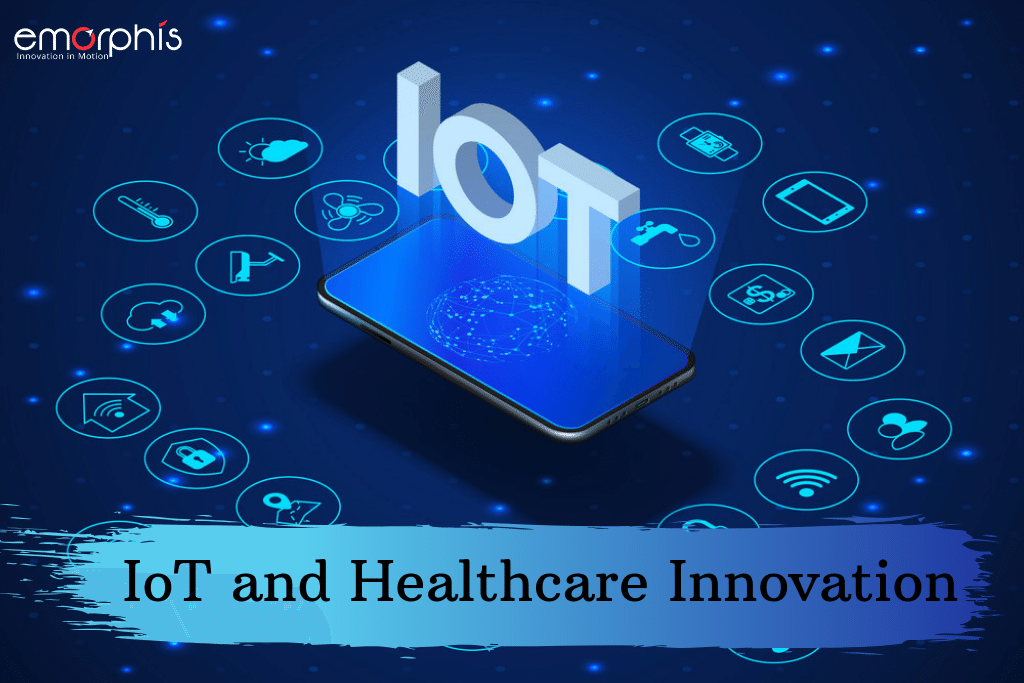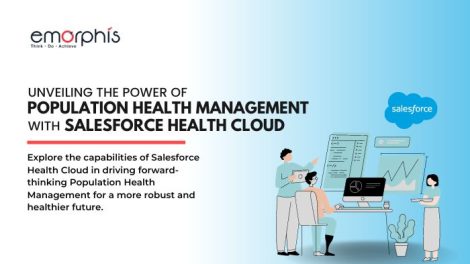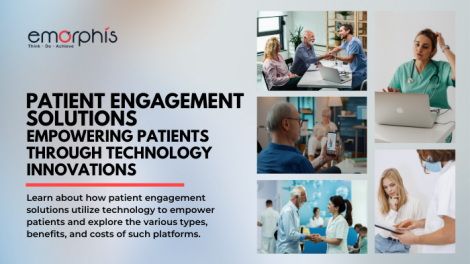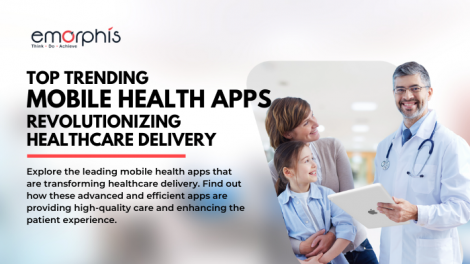Healthcare application development is witnessing an innovation in almost every quarter and IoT is playing a key role in most of the Healthcare innovations. Internet of things (IoT), has discovered a significant amount of use cases in healthcare software development that can help reshape the current version of healthcare services globally. According to Statista, The number of healthcare IoT devices is expected to grow up to 25.8 million units by 2025. The tremendous growth of IoT application development in healthcare has opened a new world of possibilities for medicine.
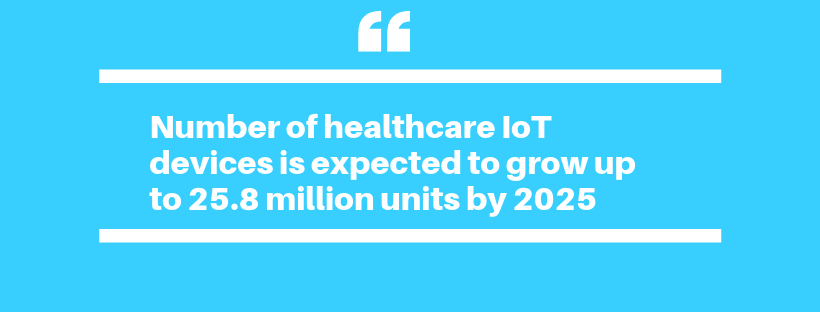
Providing patients with more control over their own lives and treatment, IoT brings forward innovative healthcare applications that enable remote care and offer invaluable additional patient data. Let us dive a little deeper and discover some of the major benefits of utilizing IoT technology for healthcare apps:
Use of IoT in Healthcare Application Development
Remote Patient Monitoring
In cases of medical emergencies such as an asthma or diabetes attack, severe heart condition, accidental injuries etc., remote patient monitoring can be a saviour. IoT app solution enables connecting the patient’s smartphone application with a smart medical device through which the patient can be monitored in real-time. The connected devices can provide the physician with emergency condition related data to the doctor who can then take an action accordingly.
Even if the patient does not face any critical immediate condition, the data collected through the connected medical device can be used to study the patient’s body behaviour and symptoms by the doctor. This data can include the patient’s blood pressure, heart rate, sugar levels, weight etc. which is transferred and stored on the cloud which can be accessed by an authoritative person (doctor or nurse in this case) and can be analysed by them from any remote location too. This decreases the chances of late handling of patients as well as their readmission rate as problems can be addressed in real-time.
Patient Care Workflow Automation
Application of IoT in healthcare apps involves automation to smoothen the workflow. Healthcare organisations can utilize IoT to automate and automate patient care workflow with the help of mobility solutions and other connectivity enabling technologies such as bluetooth, Wi-Fi and other modern protocols.
This will enable machine-to-machine communication and interoperability, which can save a lot of crucial time rather than using the old time-consuming methods for effective healthcare service delivery. Spotting illnesses and ailments in patients quickly will help healthcare organizations to work in the way of providing revolutionary ways of treating their patients. Moreover, use of technology and automation will also result in reduced costs by cutting down unnecessary patient visits while saving time and quality resources.
Data Assortment and Analysis
Healthcare devices used in hospitals can collect a vast amount of data from different patients suffering from different problems and conditions. This data is only useful if it is segregated and utilized in a proper manner. When multiple healthcare devices accumulate and send data to servers on clouds in real time, it is hard to go through it all quickly. Moreover, healthcare providers find it difficult to analyse and make informed decisions on such data obtained from multiple devices as it is a lot in quantity.
IoT helps in tracking of real-time data obtained from multiple healthcare devices as they have the ability to go through the data quickly, analyse them, and store crucial information out of it. This also save storage space, as the need to store raw data is eliminated for the last time after the analysis by an IoT device. The physicians can directly get the access to graphs and analysed data rather than going through the rough pile of information. Such healthcare analytics provided by IoT devices can also help in better treatment via informed decision-making.
Real-Time Data Tracking
IoT devices play intelligent by keeping a close eye on the patient’s vital stats. In case of an emergency, the devices make use of this data tracking to inform the doctors as early as possible with the help of alerts and signals. The doctors can take immediate actions such as sending an ambulance to the patient with the help of such alerts.
Patients can also get their reports through connected mobile devices. IoT helps in real-time alerting and monitoring thus, allowing hands-on treatments with better accuracy and apt-intervention of the doctors when needed thus, ensuring complete patient care.
How is IoT Making Healthcare Innovation Possible?
Smart Hospitals
IoT technology brings forward the concept of smart hospitals that allow effective healthcare via connected assets and devices. This improves healthcare maintenance, procedures, as well as capabilities. Even though the concept of smart hospitals has not been adopted yet, but it is expected the hospitals worldwide would upgrade in the coming years.

With predictive analysis, managers can improve the maintenance of facility for patients, as they will automatically be aware of all the mishaps or connection gaps in advance. Predictive analysis provides you with the ability to predict and outcome even before it has occurred thus, preparing you for a sustainable future. Moreover, with equipment like smart beds, it’ll become really easy to analyse the patients 24×7 and understand their conditions better. For example, if a sudden drop in the patient’s heart rate is detected, alerts and notifications can be sent to the hospital staff immediately.
Connected Wearables
The world of IoT seems incomplete without connect wearables. Connected wearable devices not only help the hospitals and doctors to get information about people but they are useful for individuals directly as well because they allow people to track their basic body stats such as heart rate, step count, body temperature etc.
Moreover, connected wearables can help doctors to analyse the patient’s data constantly even when they are discharged from the hospital facility. This is particularly helpful in cases of patient follow-up visits when they report certain problems after being discharged from the hospital facility. Wearable devices are also very helpful for the elderly as they can send alerts to the doctor in case of observation of any abnormality in the condition of the patient irrespective of the location. Doctors can take immediate actions for the patients with such real-time alerts.
Individualized Health Assessments
Individuals can assess and take care of their own health on a regular basis with the latest technology. New applications with improved concepts are making it easier for people to understand their health better and take steps towards its betterment.
These applications are introducing different concepts such as monitoring of sleep cycles to ensure that the person is getting enough sleep in a day. Smart bands such as Fitbits track the step count, calorie count as well as exercise routines for individuals that helps them to stay in good shape. Food monitoring apps are also changing the lifestyle of people as they offer calorie planner within them along with meal preparation charts and eating schedules for individuals to maximise their nutrition intake of the day while eating healthy.
To The Future
It is estimated that in the future, around 87% of healthcare organizations will be planning to implement and adopt IoT technology.
Connect with a healthcare app development company now.
With the help of connected devices, the industry can expect better outcomes and healthcare improvements in the coming years. More work is being done on creating products such as smart pills and inhalers, which can work towards improving the health of people even more.



